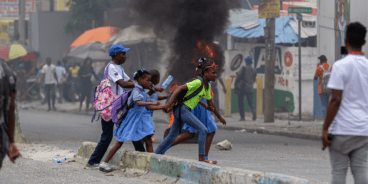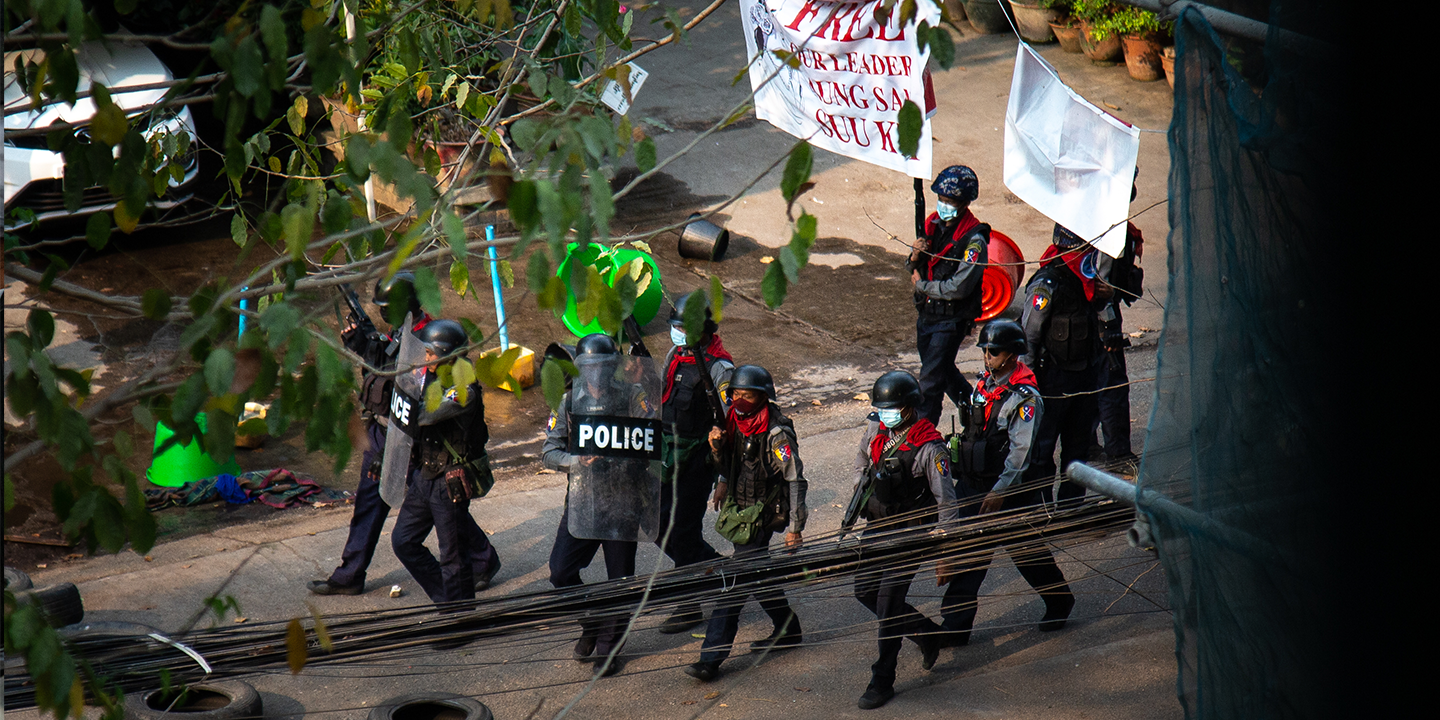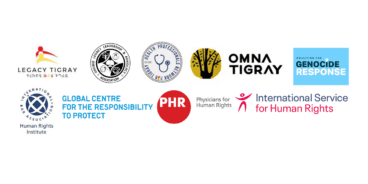

Atrocity Alert No. 245: Niger, Myanmar (Burma) and Ethiopia
Atrocity Alert is a weekly publication by the Global Centre for the Responsibility to Protect highlighting situations where populations are at risk of, or are enduring, mass atrocity crimes.
200 civilians massacred in Niger
In one week, more than 200 civilians have been massacred by presumed Islamic State in the Greater Sahara (ISGS) fighters in the volatile Tillabéri and Tahoua regions of western Niger. On Sunday, 21 March, gunmen on motorbikes attacked nomadic camps in the villages of Intazayane, Bakorat and Wirsnat in the Tahoua region, shooting “at everything that moves,” according to an eyewitness. The Nigerien government announced that 137 people, including 22 children, were killed in the attack. Many of the victims were displaced people, having fled earlier violence by Islamist armed groups.
Since January, at least 290 civilians have been killed during attacks in Niger – more than half the total number of victims killed during attacks in 2020. Just days before the assaults in Tahoua, unidentified armed men also killed 64 civilians in Tillabéri, ambushing shoppers traveling from the market town of Banibangou and also raiding the village of Darey-Dey. The attackers also targeted people’s livelihoods, including destroying grain stores and stealing cattle.
The attacks have allegedly been in retaliation for civilians collaborating with the security forces. Louise Aubin, UN Resident and Humanitarian Coordinator in Niger, condemned the recent killings, saying, “civilians are not a target and must be protected. These dreadful acts must stop. Violence against civilians constitutes a violation of international humanitarian law. We call on all parties to respect human rights law and their obligation to spare persons who are not taking part in the violence.”
In recent years ISGS has made inroads in the porous tri-border area between Burkina Faso, Mali and Niger. They have exploited local grievances to exacerbate inter-communal tensions and recruit fighters. In response to the 15 March massacres, Niger’s newly elected President, Mohamed Bazoum, promised to enhance security and ordered army reinforcements to the Tillabéri region. However, past counterterrorism operations have also led to grave human rights violations and have helped give rise to ethnic militias, exacerbating local conflicts.
The Nigerien government must stop the deadly cycle of violence in the tri-border area. Christine Caldera, Research Analyst at the Global Centre for the Responsibility to Protect, said that, “more needs to be done to prevent atrocities and protect civilians in Niger. The authorities should strengthen social cohesion within border communities by supporting community-based reconciliation initiatives and the High Authority for the Consolidation of Peace.”
Myanmar’s deadly crackdown continues as the military occupies schools and hospitals
Almost two months since the 1 February coup, mass protests continue across Myanmar and the security forces continue to use deadly force against unarmed civilians. At least three people were killed on Monday, 22 March, including a 14-year-old boy who was shot while sitting next to the window inside his home in Mandalay as police opened fire on unarmed protesters. The next day, three more people were killed, including a 7-year-old girl who was also shot inside her home in Mandalay. According to the Assistance Association for Political Prisoners, at least 286 people have been killed by the security forces since 1 February, while at least 2,906 people have been arrested, charged or sentenced.
Security forces also continue to occupy civilian infrastructure. On 19 March Save the Children, the UN Children’s Fund and UNESCO released a joint statement condemning the occupation of 60 schools across Myanmar. The humanitarian groups described this as a serious violation of children’s rights and stressed that “schools must be not used by security forces under any circumstances.” The same day, the UN’s Acting Resident and Humanitarian Coordinator in Myanmar, Andrew Kirkwood, expressed concern about 36 hospitals in Myanmar that have also been occupied by the security forces, in some cases after evicting patients. Kirkwood warned of an impending humanitarian crisis, including a “practically collapsed” healthcare system.
On 22 March the European Union (EU) and the United States (US) government announced new sanctions on Myanmar’s security forces in response to the deadly crackdown. The US government sanctioned two individuals – Head of Police Than Hlaing and Lieutenant General Aung Soe, as well as two entities – the 33rd and 77th Light Infantry Divisions of Myanmar’s Army. Meanwhile, the EU imposed new restrictions on 11 individuals, including the leader of the coup, General Min Aung Hlaing.
“Imposing sanctions on individuals and entities is an important step that governments and regional organizations can take in response to the coup,” said Nadira Kourt, Program Manager at the Global Centre for the Responsibility to Protect. “The next step should be a total arms embargo and targeting the military’s business interests, including Myanmar Economic Holdings Limited and Myanmar Economic Corporation. These conglomerates help bankroll the military’s repression. And, above all else, it is imperative that ASEAN and the UN Security Council finally take robust action.”
Ethnic cleansing and sexual violence in Ethiopia
Physicians treating survivors of sexual violence in Ethiopia’s northern Tigray region claim that rape is being used as a weapon of war against the ethnic Tigrayan population. A CNN report cited testimony from nine doctors recounting that women are being gang-raped, drugged and held hostage. Doctors said that the perpetrators – the Ethiopian federal forces and allied Eritrean soldiers – were operating with impunity. Dr. Tedros Tefera, a doctor who has been treating Tigrayan women in the Hamdayet refugee camp in Sudan, also stated that their rapists threatened that they came to cleanse their bloodlines and “Amharize” them. The Amhara are the majority ethnic group of one of the states bordering Tigray.
Since the war in Tigray started on 4 November there have been widespread reports of sexual violence, ethnically-motivated massacres, attacks on refugee camps, destruction of cultural heritage and other war crimes. As hostilities continue, the UN Office for the Coordination of Humanitarian Affairs says that approximately 1,000 people are arriving daily in the town of Shire while others arrive in Adigrat, Aksum and Shiraro after reportedly being expelled by armed actors.
In particular, civilians continue to flee from disputed areas of Tigray – including Welkait, Tegede, Humera, Telemte and Raya districts – that were recently militarily seized by the Amhara regional government, with the blessing of federal authorities. These territories were annexed into Tigray in 1991 and have been a source of recurring conflict.
On 22 March the heads of 12 UN agencies and others called on all parties to the Tigray conflict to “fulfil their obligations under international humanitarian and human rights law; ensure their forces respect and protect civilian populations from all human rights abuses; explicitly condemn all sexual violence; and take action to bring perpetrators to justice.” Yesterday, after months of denials, Ethiopian Prime Minister Abiy Ahmed finally acknowledged that Eritrean troops were present in the Tigray region and admitted that “reports indicate that atrocities have been committed.”
Widespread sexual violence, targeted killings and the forced displacement of ethnic Tigrayans may amount to ethnic cleansing. Almost five months since the war started, neither the African Union nor the UN Security Council has made any substantial progress towards mediating an end to the Tigray conflict or holding the perpetrators of atrocities accountable.
Related Content


